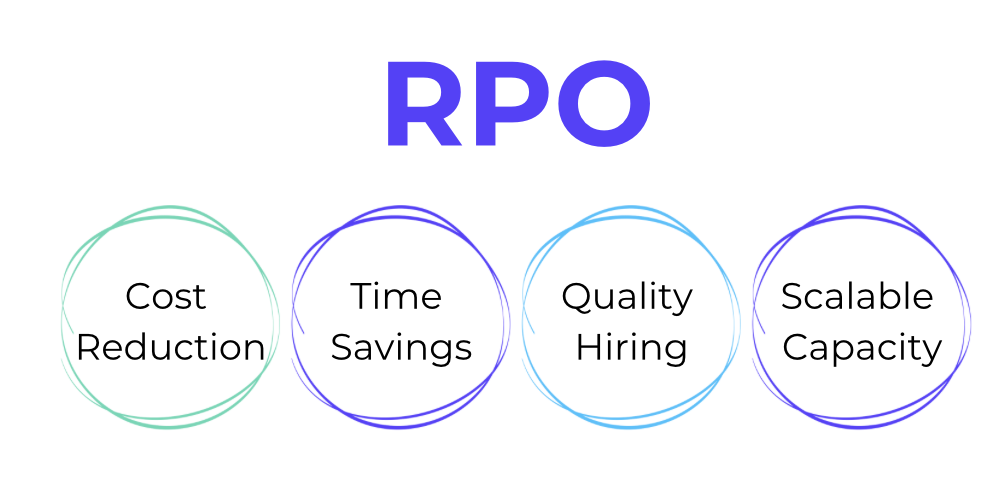Let’s explore the role of IT consulting in digital transformation and see how these strategic partners assess, strategize, implement, and optimize technology solutions. We’ll also look at the benefits of hiring IT consultants as well as the challenges to consider.
Digital transformation is the strategic adoption of digital technologies to improve processes, competencies, and business models. The scope of digital transformation extends beyond the mere use of technology. It involves changes in leadership, innovation, differentiation, and value proposition.
Need help with digital transformation?
Let\'s talk!
GET IN TOUCHNo digital transformation is complete without:
Technological Innovations
The global business environment is reshaping constantly thanks to breakthrough technologies, such as:
- Cloud computing
- Artificial intelligence (AI)
- Machine learning (ML)
- Big data analytics
- Internet of Things (IoT)
Technological stagnation can spell the end for even the most established organizations. Considering this, companies actively integrate these innovations into their daily operations.
Technology-innovation managers play an equally important role in the digital transformation narrative. These experts bridge the gap between technology and business priorities, using their specialized technical knowledge to lead the charge on digital innovations. They guide the incorporation of new processes, products, and services, setting the stage for a business’s continuing evolution.
Cultural Shifts
Digital transformation creates a culture that embraces change and continually seeks out progress. Cultural shifts at the organizational level refer to abandoning old ways that are in the way of innovation and openness. These changes foster an environment where new ideas and practices can bloom. In such environments, novel digital solutions can be effectively implemented.
This shift is underpinned by certain key aspects, such as:
- Promoting transparency: Open communication across all levels helps create an environment where every team member feels valued and understood. Transparency strengthens trust and promotes a shared understanding of the company’s strategic objectives.
- Cultivating an appetite for innovation: A culture that encourages staff to think outside the box, question the status quo, and continually seek improvement is well-suited to embracing digital transformation. Employees are more likely to buy into and support new digital initiatives if they are nurtured in an atmosphere that celebrates creativity and problem-solving.
- Developing an adaptive learning mindset: Given how fast digital technologies are evolving, organizations need to be agile and flexible. This means continually upskilling employees with the knowledge and tools they need. This ongoing learning culture reduces resistance to change and improves the organization’s capacity to use technologies for better business outcomes.
3. Process Reengineering
Process reengineering underscores the importance of an overall overhaul of business processes, not just minor adjustments or improvements. This helps improve responsiveness, productivity, quality, and customer service.
Typically, process reengineering begins with:
- Mapping out existing workflows to gain a better understanding of their functionality and integration within the business. The goal is to identify bottlenecks, inefficiencies, or outdated practices, so the team can explore potential changes that can provide the most significant benefits, whether in speed, quality, cost reduction, or customer satisfaction.
- Automation where possible. Tasks that were traditionally manual, time-consuming, and prone to human error can be automated with digital technologies, freeing up employees to focus on higher-value tasks and improving overall operational efficiency. SnapStack can help with automation.
- Transition to digital platforms. Whether it’s moving from paper to digital documents, or from in-person meetings to virtual collaborations, this step can significantly boost accessibility and efficiency while simplifying data collection and analysis.
Many businesses recognize the need for digital transformation but may not have the expertise or resources to execute it effectively. But, IT consulting promises progression.
Enlisting the expertise of external IT professionals who can provide advice and guidance on the use of IT can help you meet your business goals effortlessly. IT consultants bring their deep knowledge and expertise in technology, industry trends, and business operations to help organizations speed up their digital transformation efforts.
IT consultants perform a thorough analysis of the business, its IT infrastructure, and its market position to develop a digital transformation plan. Depending on the state of the business, this plan might involve the introduction of emerging technologies, reengineering of operations and processes, training of staff, and much more. What’s more, with their expertise in project management, IT consultants efficiently lead the change while mitigating associated risks.
To enable digital transformation in an organization, IT consultancies typically stick to four critical stages:
Assessment and Analysis
Evaluating Current IT Infrastructure and Capabilities
A detailed evaluation helps identify weak spots that need improvement and areas ripe for innovative disruption. However, it goes well beyond just taking a look at your hardware and software but rather focuses on different areas, such as:
- Infrastructure Assessment
If you’re to understand the capabilities and limitations of your servers, storage, network systems, and data center, you need to analyze all these segments. Businesses that fail to conduct an infrastructure assessment often encounter roadblocks in their digital transformation ventures.
This assessment refers to a review of all software applications in use, their suitability to the organization’s goals, interoperability, and potential to integrate with new digital tech solutions. Firms that invest in software assessments witness improvement in their operational processes.
The consultants evaluate the data governance mechanism of the firm to check for data quality, security, privacy, and compliance with regulations. The benefits of data governance are multifaceted, impacting organizations at all levels.
- Security and Privacy Audit
A detailed review of the security infrastructure protects against cyber threats and data breaches. Global cybercrime costs are likely to reach $10.5 trillion annually by 2025, pointing to an increase in cyber attacks.
Identifying Business Goals and Objectives
The pursuit of digital transformation should always be guided by goals that are:
- Specific: Knowing exactly what you hope to achieve with digital transformation helps avoid ambiguity. For example, executing a new customer relationship management (CRM) system to improve data collection.
- Measurable: Establish parameters that help determine if you’re making progress toward your goals. If the objective is customer satisfaction, a measurable goal could be a 20% increase in positive customer reviews over the next six months.
- Achievable: While it’s great to be ambitious, your goals also need to be attainable. Assessing the resources available, such as time, budget, and expertise, is vital.
- Relevant: Goals should align with the business’s strategic direction. If an organization prioritizes exceptional customer service, investing in customer-facing technology should be the priority,
- Time-bound: Deadlines create urgency and can inspire action. Including time elements, such as launching a new mobile app by the end of the third quarter, adds a sense of urgency.
Research found that businesses that align IT transformation with business objectives have 60% higher chances of achieving their goals, so make sure you do the same.
Strategy Development
The process of digital transformation is far from choosing a random blend of technologies — it’s a deliberate, planned effort toward greater efficiency, agility, and innovation. This transition is often visualized in a digital transformation roadmap, an essential strategic tool that plots out the steps of your transformation journey.
Creating a carefully defined and strategic digital transformation roadmap involves numerous elements, all of which play a crucial role in ensuring your efforts are successful, efficient, and drive value for the organization:
- Aligning with Business Objectives: An effective strategy begins with a clear understanding of the organization’s broad goals. The roadmap should serve to support and accelerate these aims, not create unrelated silos of digital innovation. IT consultants align digital plans with business strategies, ensuring every tech-based initiative contributes directly to organizational objectives.
- Stakeholder Mapping: As part of the roadmap creation process, it is crucial to map stakeholders who will be affected by the transformation and understand their needs, expectations, fears, and perceptions. A tailored approach helps in attaining their support and collaboration, vital for the success of digital transformation processes.
- Creating Digital Capability Matrix: It’s not enough to simply adopt technology, it’s essential to build digital competencies within the organization. The roadmap should outline plans for building a digital capability matrix in personnel across all levels of the organization, from front-line employees to top executives or leaders.
- Building in Flexibility: The digital transformation roadmap is not a static document. It needs to be flexible enough to accommodate emerging technologies and evolving business needs. Having the ability to pivot in response to market conditions or business performance is critical in the rapidly changing digital landscape.
Prioritizing Initiatives and Investments
Not all transformational initiatives are created equal, and careful prioritization can be the key to reaping benefits from the transformation process. A detailed IT consulting process considers resources, return on investment, customer impact, and alignment with strategic goals to prioritize transformation initiatives. This approach ensures that your organization’s finances, time, and energy are effectively allocated in the transformation journey.
Initiatives that offer quick wins or those that particularly serve strategic goals are often placed at the top of the list. IT consultants rely on their industry experience and foresight to prioritize initiatives effectively.
Implementation and Execution
Deploying New Technologies and Solutions
With a roadmap and prioritization in place, the real work of digital transformation begins. IT consultants guide the implementation of new systems, software, and workflows, managing the technical aspects of the change. They assist with data migration, system integrations, user training, and more.
Managing Change and Overcoming Resistance
Change is hard and resistance is expected. It is not just about new tech — it also involves cultural and process changes that might unsettle the staff. IT consultants can play a pivotal role in managing these transformations, fostering buy-in, and smoothing the path to successful technology adoption. Some best practices include clear communication, early involvement of end users, and continuous support.
Monitoring and Optimization
Determining the success of a digital transformation initiative isn’t subjective, it’s driven by data. Outcome-based key performance indicators (KPIs) are established to measure the success of various transformation initiatives. These KPIs — which might include metrics like improved efficiency, increased revenue, better customer satisfaction, or decreased downtime — provide objective evidence of progress and areas that need improvement.
Iterative Improvements and Continuous Optimization
Finally, remember that digital transformation is not a one-time project but an ongoing task IT consultants monitor the implemented solutions, ensuring they deliver the expected benefits and tweaking them for better results. They also help businesses prepare for the next wave of transformation, keeping them ahead in the game of digital evolution.
These are just some key benefits of integrating IT consulting into your digital transformation strategy:
Access to Specialized Expertise and Experience
IT consulting firms bring vast technical knowledge and rich experience to the table. They have dealt with diverse business scenarios and technology stacks, equipping them to handle specific needs with a high degree of competence.
Their guidance can provide the edge businesses need to not only navigate the complexities of recent technologies but also gain maximum value from their digital initiatives.
Accelerated Implementation and Time-to-Value
With IT consulting, businesses can fast-track the digital transformation process. IT consultants expedite the implementation cycle by establishing effective project management practices, ensuring the timely launch of digital initiatives.
This acceleration helps businesses realize the value of their transformation efforts faster, creating a competitive advantage in today’s swift market dynamics.
Risk Mitigation and Compliance Assurance
The digital world brings forth a lot of risks, from data security breaches to non-compliance issues. IT consultants can help cushion these threats, armed with the ability to foresee and prevent potential hazards.
They support businesses in complying with many regulations, such as GDPR for data privacy, thereby reducing the business’ risk profile. For instance, research shows that businesses using IT consulting services display higher compliance levels.
Improved Agility and Flexibility
IT consultants can help businesses become more agile and flexible in their operations, a critical aspect of thriving in the digital era. Organizations can respond swiftly to emerging opportunities and threats through new technologies and practices. This agility underpins sustained business growth and resilience in a volatile business landscape.
As prosperous digital transformation may seem, it isn’t without challenges. You’re likely to face certain hurdles and considerations in the process. Not to worry, though, understanding these potential issues can put you a step ahead, helping you craft better strategies to mitigate them.
Alignment with Organizational Culture and Strategy
Imagine how challenging and ineffective it could be if your team is resistant to the digital transformation process because they can’t see how it aligns with the company’s goals and culture. It would be like trying to fit a square peg in a round hole!
That’s why an IT consulting firm must ensure that any digital transformation is compatible with an organization’s strategic objectives and corporate culture. They should foster an environment where employees feel comfortable embracing new technologies and processes.
Integration with Existing Systems and Processes
The last thing you’d want is for your current operations to be disrupted or for your employees to go through steep learning curves. Hence, balancing the old with the new in a seamless way is of paramount importance.
In such cases, the role of IT consulting firms becomes even more crucial. They can guide you through the complex process of integration, ensuring minimal disruption and maximum efficiency.
Data Security and Privacy Concerns
As your business shifts towards more digital platforms, there’s an increased risk of cyberattacks, data breaches, and privacy concerns. Ensuring robust data security measures and privacy regulations are in place is a crucial part of any digital transformation strategy.
IT consulting firms, with their expertise, can assist your business in implementing sophisticated cybersecurity measures to ensure that your digital transformation journey is successful and secure.
Skills Gap and Talent Acquisition
In this era of rapid technological evolution, one of the key challenges is bridging the skills gap. This refers to the difference between the skills your employees currently have and the skills needed to effectively implement and manage new technologies.
Acquiring new talent with relevant skills may also become necessary and this can be a time-consuming and costly process. An effective IT consulting firm can support you in assessing your organization’s skills gap, crafting a plan for upskilling existing staff, and identifying when new talent acquisition may be required.
IT consulting is vital in guiding businesses through the maze of available technologies and helping to implement new systems that drive innovation. As technology continues to evolve, IT consultants play a critical role in ensuring businesses can effectively navigate the digital world.







